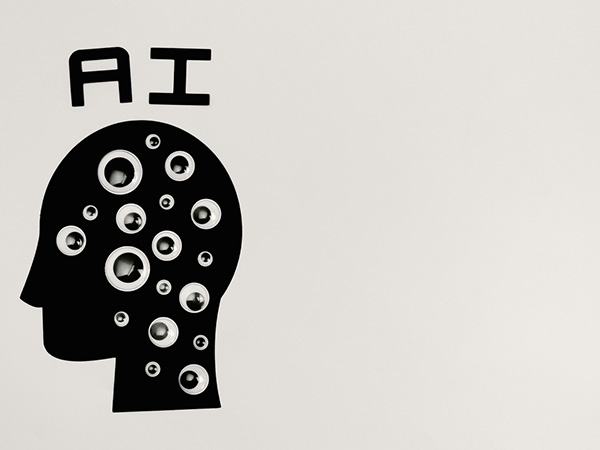Industry Talk - Free Talk
The Duality of Everything – AI Included
by Azhar Siddiqui
June 7, 2023

Artificial Intelligence (AI) has been the subject of much fascination and speculation, sparking debates about its potential impact on society. Is AI destined to be a force for good or evil? For me, the answer lies not in the technology itself, but in the hands of its creators: humans. Just like humans, AI systems will inherently embody both positive and negative aspects. It is essential to recognise this duality and navigate the grey area as we embrace the transformative power of AI.
This is because AI is, in its essence, a product of human ingenuity. It is crafted through the lens of human perspectives, principles, and experiences. The rules, programmes, and algorithms that drive AI are designed by humans, reflecting their understanding of the world. As a result, AI inherits the qualities, biases, and limitations of its creators. And just as humanity is a tapestry of virtues and flaws, AI too will exhibit a mix of positive and negative traits. The potential for AI to bring about tremendous benefits is undeniable. It can revolutionise industries, improve efficiency, enhance decision-making, and tackle complex problems. AI’s ability to process vast amounts of data with incredible speed offers opportunities for scientific discoveries, medical breakthroughs, and environmental sustainability.
However, the shadow side of AI must also be acknowledged. The same technology that empowers AI can also be misused or weaponised. Ethical concerns arise when AI is employed for malicious purposes, invading privacy, perpetuating discrimination, or manipulating public opinion. Bias, both implicit and explicit, can find its way into AI algorithms, leading to unfair outcomes and exacerbating social inequalities.
The dual nature of AI mirrors the natural balance present in the universe. The interplay between positive and negative forces fosters equilibrium. Similarly, acknowledging the potential for both good and bad AI allows us to approach its development and deployment with caution and responsibility.
As to how we can ensure an overall positive AI trajectory, the obvious answer is establishing a sound ethical framework and regulatory measures. Collaboration between technologists, ethicists, policymakers, and the wider society is vital in shaping AI systems that align with our shared values. Transparency, accountability, and fairness should be at the core of AI development, ensuring that AI benefits all of humanity rather than serving only a select few.
However, we must consider that perhaps the ultimate path that AI takes is intricately linked to how we, as human beings, proceed forward. If we choose to embrace more goodness, love, fairness, and if we strive to become more ethical, empathetic, and environmentally conscious as a species, then maybe AI will adopt a similar complementary role alongside us. The trajectory of AI is deeply intertwined with our collective values and actions.
By fostering a culture of compassion, empathy, and respect, we can guide the development and deployment of AI towards serving the greater good. Nurturing an environment that prioritises fairness, inclusivity, and social justice will shape the future of AI in a positive direction. As we evolve as a society, we have the opportunity to instill these values within AI systems, ensuring they align with our aspirations for a better world.
Therefore, the responsibility lies not only with AI developers and policymakers but with all of humanity. We must actively engage in conversations, debates, and collaborations that steer AI towards enhancing our shared well-being. As we make ethical choices in our everyday lives, advocate for social progress, and promote sustainable practices, we lay the foundation for AI to complement and amplify our positive efforts.
In this symbiotic relationship between humans and AI, our collective actions become the guiding force. By embracing the principles of fairness, love, and compassion, we can influence the trajectory of AI, shaping it as a force that uplifts humanity rather than diminish it.
I’ve said before that, in order to compete with AI, we must become more human. I now think that maybe we should not look at AI as something to compete with, but rather something to live alongside with and instill human values in it. Maybe we can remove the artificial altogether and make it more human.













